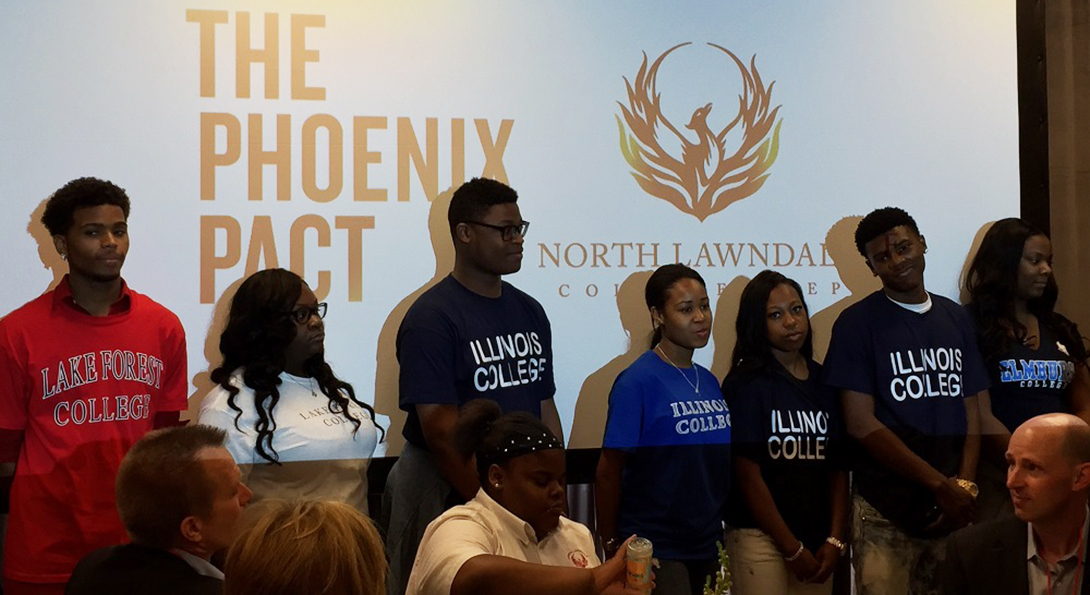Phoenix Pact Endowment Fosters College Choice

There are many challenges attached to college readiness for first-generation students in urban high schools: the unknowns of the application process, family fear of students leaving home, addressing the financial burdens. At North Lawndale College Preparatory High School on Chicago’s west side, Chief Academic Officer Nicole Howard is expanding the college readiness conversation from simply getting into college to attending the best fit college, regardless of the unknowns and finances. Howard, EdD Urban Education Leadership '15, has helped to launch the Phoenix Pact, a partnership with private Chicago businesses and philanthropies raising money to close the financial gap preventing graduates from attending a college that will facilitate their success.
“You may get an award letter from a state school with low graduation rates and have zero out of pocket costs, but there may be a $4,000 gap to attend the University of Illinois, that has a strong graduation rate” Howard said. “Kids are choosing schools where there is no gap, but what we have found is that a lot of our graduates don’t graduate from certain institutions. We want to steer students to schools with higher success rates of graduating.”
The endowment, which has raised more than $18 million thus far, gives North Lawndale students greater access to what Howard’s team refers to as “Success Schools,” colleges where more than half of students who are low-income and from a minority background graduate on time. Examples of these schools include Michigan State University, Lake Forest College, University of Illinois and Luther College.
This approach to higher education is part of Howard’s comprehensive philosophy, theorizing that students who are successful in college will become employed and contribute back to their own neighborhood to break the cycle of poverty.
“We need students who are well-equipped to enter the workforce and be major contributors to their own success and the success of communities,” Howard said. “College is a huge investment of time, not just resources, and we need to make sure our kids are getting the most out of every second they spend in school.”
From a leadership perspective, launching the Phoenix Pact challenged Howard and her leadership team in a number of ways. Parents were concerned about students transferring into North Lawndale during their senior year to take advantage of the funding. To safeguard against this, the school has pledged to continue recruiting purposefully from the North Lawndale neighborhood (representing 70 percent of the current student body) and creating eligibility requirements for students to come from legitimately low-income environments.
The program has also spurred concerns about grade inflation, as students must earn a 3.0 GPA to qualify. Will teachers feel sorry for students who are on the cusp of qualifying and grade generously? Howard has led a school-wide review of grading policies and is working with teachers to put into writing what grading equity means to the school.
“To put into place something this large with fidelity, the initial planning is so critical,” Howard said. “Having other stakeholders in the conversation brings up these questions and forces us to think about how we can guarantee success.”
Could a similar program be brought to scale district-wide? Howard says she thinks government assistance is the most efficient way to create such breadth of outreach. If North Lawndale is able to send students to success schools with an $18 million endowment (or larger), what size endowment would be needed city-wide? Clearly, massive private investment would be required. On the public side, Howard suggests a quicker solution could be to reform the Pell Grant system; currently, the only qualification is to come from a low-income household. Howard suggests Pell Grants could be better coupled with sending students to colleges that increase chances of student success.